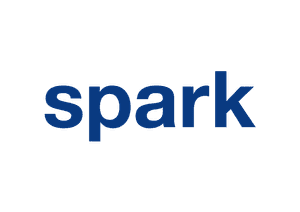Fishing happens at night on Lake Tanganyika, which is accessible by four countries and a lifeline for around 10 million people. Yet the lake is threatened by overfishing, climate change and biodiversity loss, also impacting the livelihoods of thousands that rely on the fish sector.
Fish sellers, who are often widows, veterans and young, single mothers, gather on the beaches to buy what they can to sell in the local markets. Their trade provides Burundi’s population, of whom 87% live below the World Bank’s poverty line, with vital protein.
Samaki (Fish) Centre
With financing from the Dutch Ministry of Foreign Affairs, SPARK has built the Samaki Centre close to Rumonge, with facilities for cleaning, drying, smoking and freezing excess catch. In a country of 11.7 million people, only 3% have access to electricity, so the freezing facilities in particular are a first-of-its-kind in Burundi. These facilities are currently used by the COPEDECOBU (Cooperative pour la Pêche et le Développement du Commerce du Poisson au Burundi) fishing cooperative, which includes fishers and fish sellers. Learn more.
Shifting the Power
Localisation - shifting power, money and resources into the hands of local staekholders - is central to this story. After diligent training and coaching, the maintenance and management of the state-of-the-art Samaki Centre was handed over to the National Fish Federation and local fishing cooperatives on 12 December, 2023.
Implementing programmes with local stakeholders brings more sustainable solutions, which can continue long after development programmes are finished. SPARK brings together international donors, central government and local government, civil society and the private sector to ensure the longevity of its economic inclusion programmes.
Making the film: Hyperlocal
Rather than flying in expensive film crews, as many international charities continue to do, SPARK chooses always to work with talented local creatives, furthering its mission to create employment opportunities in fragile and conflict-affected situations.
Collaborating with the talented Burundian filmmakers, editors, photographers and directors at ‘Mark-It’ was essential for creating the film. The woman-founded creative agency co-developed the storyboard and enabled unique access to rarely documented stories and contributors, such as the night fishing crews on Lake Tanganyika.
Finally, the film’s narrator guides the story in Burundi's national language, Kirundi - one that is rarely heard by Western audiences. SPARK makes this choice to deviate from the colonial imprint of international charity communications, the vast majority of which use English.
SPARK is an international non-governmental organisation with its headquarters in Amsterdam, The Netherlands and 16 offices worldwide, spanning the Middle East and North Africa, Sub-Saharan Africa and Eastern Europe.
For 30 years, SPARK has been supporting youth, including women and refugees, in fragile and conflict-affected situations to gain market-relevant skills, find jobs, start businesses and scale SMEs. We operate with the belief that if youth have access to opportunities, internships, jobs, skills development, businesses etc. they can build and grow.
SPARK’s Strategy 2030 aligns with the UN Sustainable Development Goal 8: Decent Work and Economic Growth and supports economic development within three high growth potential sectors: green economies, digital technology and agribusiness.

We align with the following UN Sustainable Development Goals: